Olivier Ihl is a French professor of political science, director of the Grenoble Institute of Political Studies in Grenoble, France and member of the laboratory PACTE.
Pierre-André Taguieff is a French philosopher who has specialised in the study of racism and antisemitism. He is the director of research at the French National Centre for Scientific Research in an Institut d'études politiques de Paris laboratory, the Centre for Political Research (CEVIPOF). He is also a member of the Cercle de l'Oratoire think tank.

Patrick Cabanel is a French historian, director of studies at the École pratique des hautes études and holder of the chair in Histoire et sociologie des protestantismes. He mainly writes on the history of religious minorities, the construction of a secularised French Republic and French resistance to the Shoah.
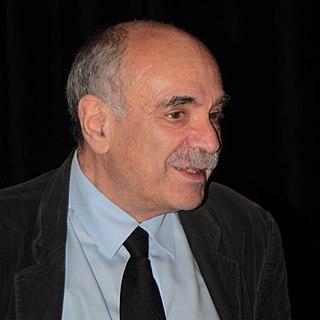
Michel Wieviorka is a French sociologist, noted for his work on violence, terrorism, racism, social movements and the theory of social change.

Sandra Laugier is a French philosopher, who works on moral philosophy, political philosophy, philosophy of language, gender studies, and popular culture. She is a full professor of philosophy at the University of Paris 1 Panthéon-Sorbonne and a Senior member of the Institut Universitaire de France. She currently serves as the deputy director of the Institut des sciences juridique et philosophique de la Sorbonne. In 2014, she received the title of the Chevalier de la Légion d’honneur. In 2022, she was awarded the Grand Prix Moron by the Académie française. In 2024, she was elected to the American Philosophical Society.
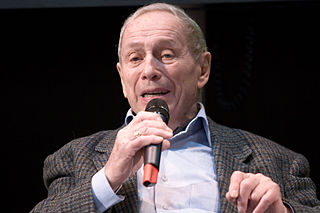
Georges Balandier was a French sociologist, anthropologist and ethnologist noted for his research in Sub-Saharan Africa. Balandier was born in Aillevillers-et-Lyaumont. He was a professor at the Sorbonne, and is a member of the Center for African Studies, a research center of the École pratique des hautes études. He held for many years the Editorship of Cahiers Internationaux de Sociologie and edited the series Sociologie d'Aujourd'hui at Presses Universitaires de France. He was elected to the American Philosophical Society in 1976. He died on 5 October 2016 at the age of 95.
Jean-Marie Brohm is a French sociologist, anthropologist and philosopher. Professor of sociology at the University of Montpellier III, he was also the founder of the journal Quel Corps ?, member of the editorial staff of the monthly Répertoire and is actually director of the journal Prétentaine. Brohm has written many books and is the leading proponent of the radical critique of sport in France.

Michel Maffesoli is a French sociologist.

Georges-Elia Sarfati is a philosopher, linguist, poet, and an existentialist psychoanalyst, author of written works in the domains of ethics, Jewish thought, social criticism, and discourse analysis. He has translated Viktor E. Frankl. He is the grand-nephew of the sociologist Gaston Bouthoul.
Jean-Paul Willaime is a French sociologist specialized in contemporary Protestantism, Christian ecumenism, Secularism and religions, theories and methods in the sociology of religions.
Claude Mossé was a French historian specializing in the history of Ancient Greece.

Geoffroy de Lagasnerie is a French philosopher and sociologist.
Gabriel Le Bras (1891-1970) was a French legal scholar and sociologist.
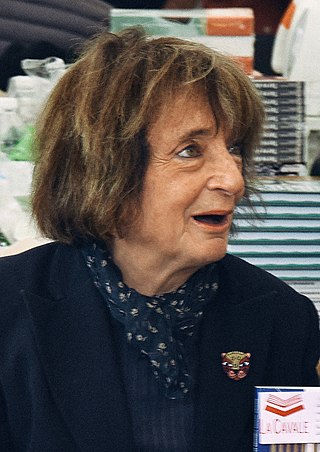
Monique Pinçon-Charlot is a French sociologist, research director at the French National Centre for Scientific Research (CNRS) until 2007, year of her retiring, attached to the Research Institute on Contemporary Societies/ l'Institut de recherche sur les sociétés contemporaines (IRESCO).
Georges-Henri Bousquet was a 20th-century French jurist, economist and Islamologist. He was a professor of law at the Faculty of Law of the University of Algiers where he was a specialist in the sociology of North Africa. He is also known for his translation work of the great Muslim authors, Al-Ghazali, a theologian who died in 1111 and Tunisian historian Ibn Khaldun (1332–1406). He was known as a polyglot, spoke several European languages and Eastern ones.
Jean Andreau is a French historian, former student of the École normale supérieure (1960) and former member of the École française de Rome. As of 2016, he is research director at the EHESS.
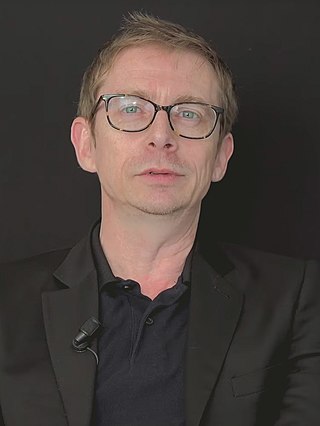
Gérald Bronner is a French social scientist and author. Bronner is a professor of sociology at Université Paris-Diderot and is a member of the Institut Universitaire de France. He is one of the main proponents of cognitive sociology in France and is known for his work on collective beliefs as well as for his involvement in jihadist radicalization prevention programs with the French government. More generally, his research has focused on the key success factors of a belief in social contexts.
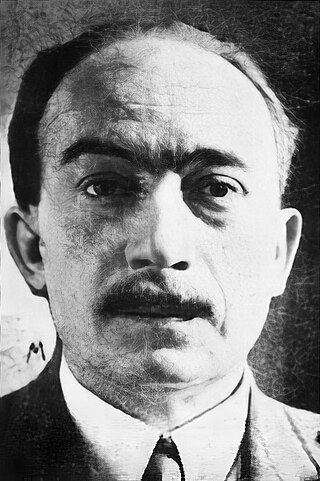
Émile Mireaux was a French economist, journalist, politician and literary historian. In the 1930s, he edited Le Temps and contributed to other right-leaning journals. He became a senator in 1936, and briefly served as a minister in 1940. From 1940 until his death, he held a chair in political economy, statistics and finance at the Académie des Sciences Morales et Politiques.

Edgard Milhaud was a French professor of economics, a militant socialist, and a promoter and theoretician of social economy.

Jean Baechler, born 28 March 1937 in Thionville (Moselle) and died 13 August 2022 in Draveil, was a French academic and sociologist.












